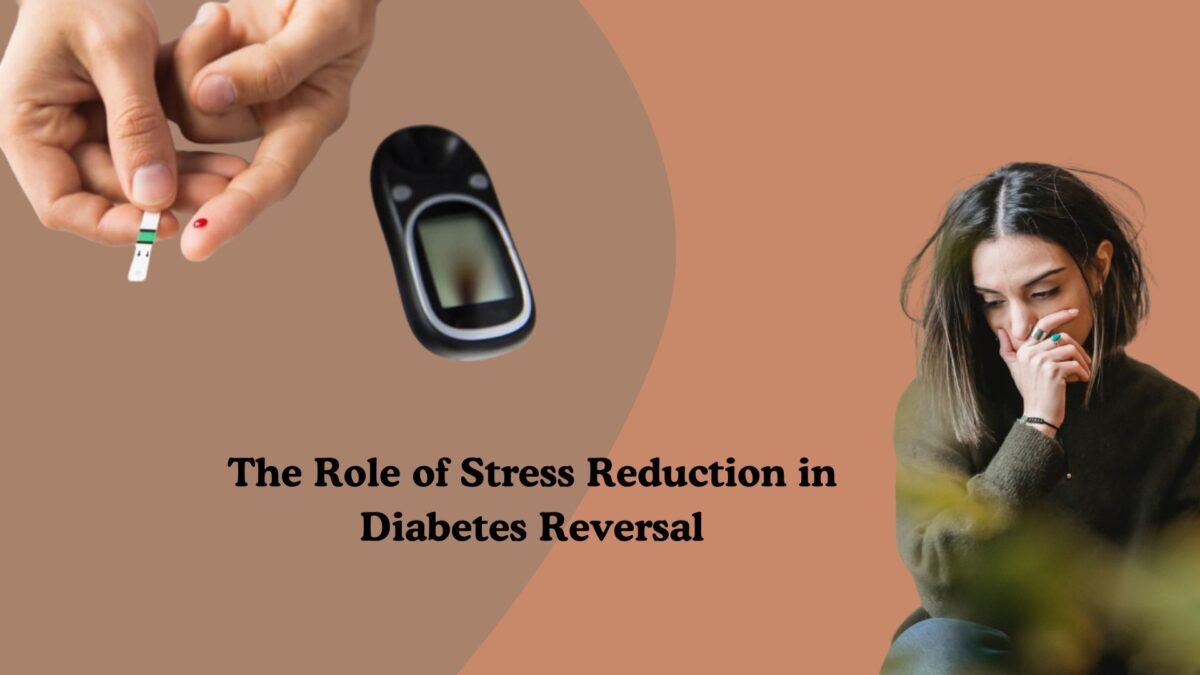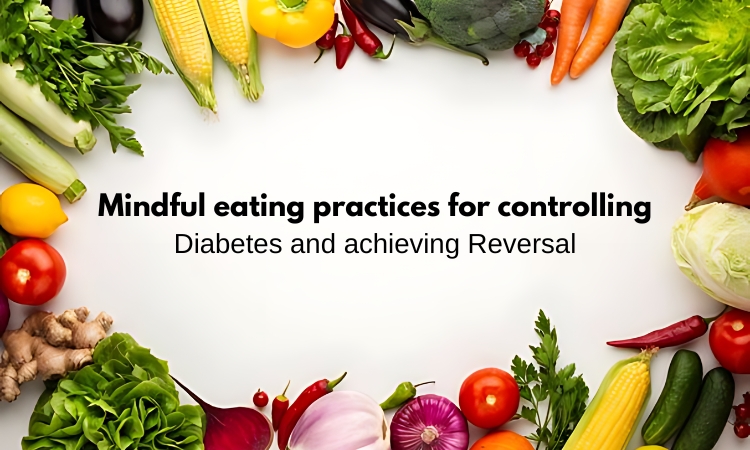The Role of Stress Reduction in Diabetes Reversal

Low-Carb Diets and their Impact on Blood Sugar Levels
May 11, 2024
Understanding the Benefits of Intermittent Fasting for Diabetics
May 25, 2024The Role of Stress Reduction in Diabetes Reversal
In the intricate tapestry of human experience, stress emerges as a ubiquitous force, a dynamic thread weaving through the fabric of our lives. This innate response, designed to aid us in navigating the unfamiliar, takes centre stage in our physiological and psychological realms. In this exploration, we embark on a journey to unravel the complex relationship between stress and diabetes, delving into the biological intricacies that connect these seemingly disparate aspects of our existence.
Understanding the Enigma of Stress
Stress, a human reaction deeply embedded in our evolutionary history, proves challenging to quantify objectively. Its manifestations are subjective, ranging from agitation and dread to exhaustion and frustration. The body's stress response, triggered by internal or external stimuli, is a transient mechanism that keeps us alert and prepared to confront potential dangers. This fight-or-flight reaction is a survival strategy with momentary effects.
However, its impact becomes far-reaching when stress extends its stay, transforming into a chronic companion. Chronic stress, sedentary lifestyles, and unhealthy dietary patterns contribute to weight gain and disrupt glucose and lipid metabolism. This lays the groundwork for metabolic dysfunction, a precursor to various health issues.
Stress, Hormones, and Blood Sugar Dynamics
In moments of stress, a symphony of hormones comes into play, influencing blood sugar levels. Epinephrine (adrenaline), glucagon, growth hormone, and cortisol collaborate to ensure enough energy is readily available. Insulin levels drop, allowing glucagon and epinephrine to rise, prompting the release of more glucose from the liver. Simultaneously, elevated levels of growth hormone and cortisol make body tissues less sensitive to insulin, resulting in increased glucose availability in the bloodstream.
The Diabetes Perspective: Stress and Blood Sugar Fluctuations
For individuals with type 2 diabetes, stress can induce fluctuations in blood sugar levels. Stressful situations, be they infections, serious illness, or emotional stress, trigger a hormonal response. The hormonal interplay involves a rapid release of epinephrine and glucagon, followed by a slower release of cortisol and growth hormone. This response, lasting 6-8 hours, can make blood sugar challenging to control, leading to a phenomenon known as a "rebound" or "Somogyi" reaction.
Stress Management for Diabetes
Acknowledging the pivotal role of stress in diabetes opens avenues for proactive management. Implementing breathing techniques, adhering to structured exercise schedules, and making conscious lifestyle choices all significantly regulate sugar levels. Steering clear of impulsive eating and adopting mindful practices in sleep and physical activity govern the body's response to metabolic, physiological, and psychological imbalances.
Exploring Stress's Impact on Blood Sugar Levels
During stressful situations, a cascade of hormones—epinephrine, glucagon, growth hormone, and cortisol—contribute to fluctuations in blood sugar levels. Preparing for a potential threat, the body ensures an ample energy supply by lowering insulin levels, increasing glucagon and epinephrine, and releasing more glucose from the liver. Simultaneously, heightened growth hormone levels and cortisol reduce body tissue sensitivity to insulin, making more glucose available in the bloodstream.
Insights into Type 2 Diabetes and Stress
For individuals with type 2 diabetes, stress introduces a new layer of complexity to blood sugar management. The hormonal stress response, marked by a swift release of epinephrine and glucagon followed by a more prolonged release of cortisol and growth hormone, can persist for 6-8 hours. This can challenge blood sugar control, resulting in a "rebound" or "Somogyi" reaction.
Navigating the Challenges
Understanding the dynamic interplay of stress hormones in the context of type 2 diabetes sheds light on the challenges individuals face in maintaining optimal blood sugar levels. Stress becomes a double-edged sword, influencing the immediate and long-term aspects of diabetes management.
Strategies for Diabetes Management Amidst Stress
Acknowledging the pivotal role of stress in diabetes opens avenues for proactive management. Implementing breathing techniques, adhering to structured exercise schedules, and making conscious lifestyle choices all significantly regulate sugar levels. Steering clear of impulsive eating and adopting mindful practices in sleep and physical activity govern the body's response to metabolic, physiological, and psychological imbalances.
Conclusion
The intricate interplay of stress and diabetes unveils a narrative that extends beyond the surface, delving into the very fabric of human biology and evolution. By understanding these connections, we empower ourselves to make informed choices, fostering a proactive approach to stress management and diabetes prevention. In the dance of stress and diabetes, knowledge emerges as a powerful partner, guiding us towards a healthier, more balanced life.







